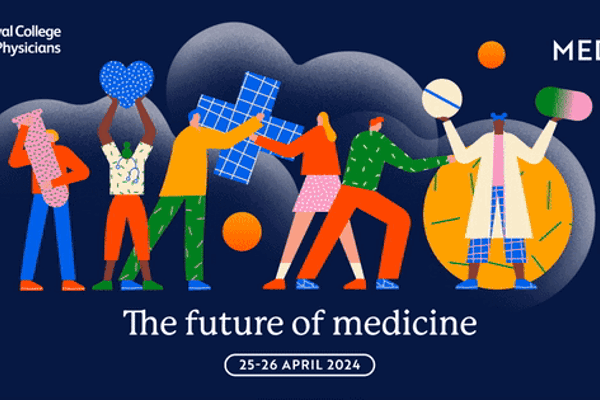Earlier this month the chief medical officer (CMO) published his annual report for 2023, focused on how to improve the health and quality of life of those living in an ageing society.
The ageing population is one of the most significant challenges that we face when it comes to sustainably providing healthcare. The make-up of our population has changed dramatically since the creation of the NHS. In 1948, there were 1.5 million people aged 75 and over living in England and Wales, but by 2021, this number had grown to over 5.2 million people. Our ageing population is one of the key reasons we campaigned for a doubling of medical school places so that the NHS workforce could keep pace with demand, and why we strongly welcomed the commitment to new medical school places in the NHS Long Term Workforce Plan (LTWP).
As we get older, we are more likely to experience multiple health conditions. Projections from the Health Foundation’s Health in 2040 report published earlier this year estimated that the number of people living with major illness by 2040 will increase by 2.5 million to 9.1 million people. This is largely a result of an ageing population and will have implications for healthcare, as well as for other public services and the labour market.
There is a clear role for us as clinicians in ensuring that healthcare delivery better suits the needs of older people. If we act now, we can prepare for future challenges such as a greater number of older patients with multiple health conditions. The CMO’s report is clear that, to ensure the NHS is ready to address the needs of the population over the next 20 years, we need to adapt to different ways of working within medicine and, in particular, there is a growing need for investing in our generalist skills. The LTWP also recognises the need for more generalist skills. Indeed, this was the theme of the CMO’s presentation at our recent RCP Med+ conference (still available on demand).
Specialism has transformed medicine and should remain a key part of our role as physicians, but generalist skills are necessary to treat patients with multiple health conditions. As I said in response to the CMO’s report, it is vital that specialists are supported to feel confident in their generalist skills to provide joined-up care for these patients. With an increasing number of people with multiple long-term conditions, generalist skills are key, alongside close working links with primary and community care and the voluntary sector. It will take time to train doctors who can provide generalist care together with specialist expertise, as our RCP discussion paper The shape of medicine recognises, but we need to be moving to that position now.
As we said in our Major Conditions Strategy response, with the arguable exception of primary care, most current services and support functions are not established to treat multiple conditions together. The current healthcare system focuses heavily on single-disease pathways – rising multimorbidity should only hasten efforts to ensure that services are built around people with multiple conditions, so that the individual is put at the centre of planning for diagnosis, treatment and care. Person-centred care is key so that a patient is managed as a whole, and not as a series of individual illnesses.
Our health is largely determined by our environment, and the CMO’s report rightly recognises that inequalities in biological ageing are largely preventable and affected by the social and economic environments that we work and live in. For example, 73% of adults aged 65–74 are living with overweight or obesity. The report says that being physically active, eating a healthy diet, not smoking and moderate alcohol consumption can greatly improve health outcomes, and older people have greater risk factors in relation to these.
While the health service can help people to manage their conditions and promote healthy lifestyles, it cannot tackle the reasons why many people become ill in the first place. This is why action from the government on prevention is key. Those who live and work in more deprived areas are more likely to be exposed to smoking, air pollution, poor housing and unhealthy food, with less access to green spaces, good transport and employment opportunities. The RCP published an updated paper on health inequalities in October 2023 highlighting these issues, and renewed our calls for a cross-government strategy on health inequalities that considers the role of every government department in tackling the wider determinants of health.
In January 2023, just under one-third of RCP members told us that they had seen more people with illness as a result of their living conditions in the three months prior. As doctors, we can try to promote things like healthy and balanced diets to our patients, but it is within the gift of the government to make changes to the way that certain foods are priced within supermarkets, or to alter the planning system to restrict the number of takeaways in an area.
It is vital that we invest in the health of our population, and especially the health of older generations. Systematic planning and change are needed across government and healthcare to prepare for the future health needs of the country. Prevention is key to ensuring that people can live in good health for more of their lives.




